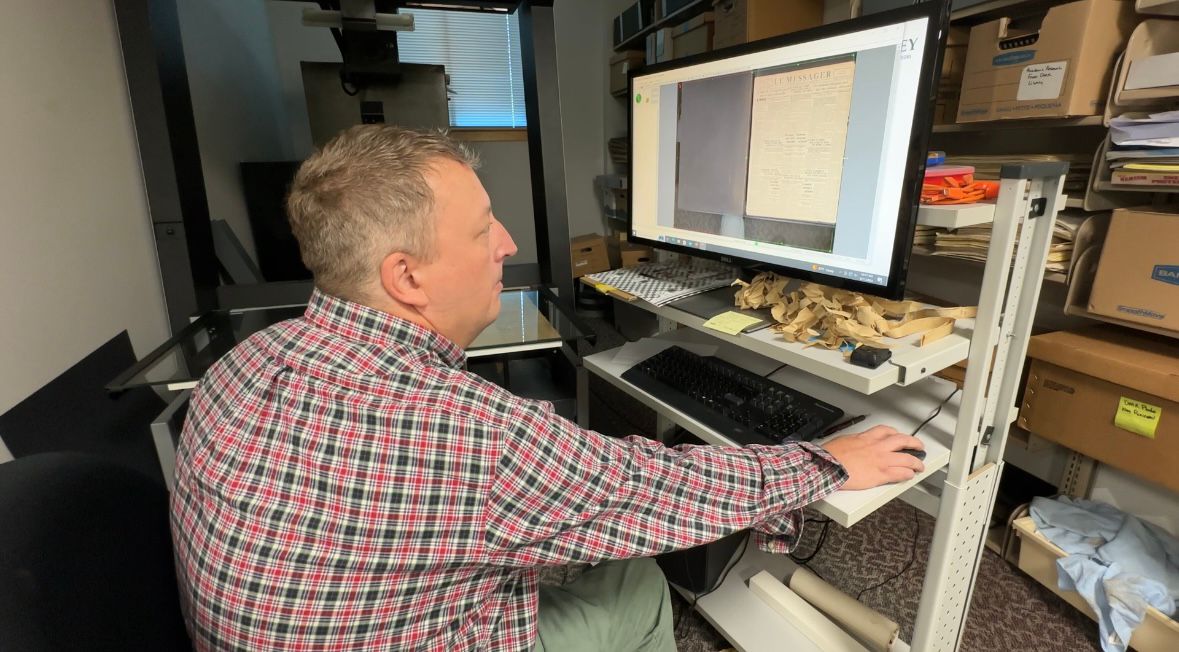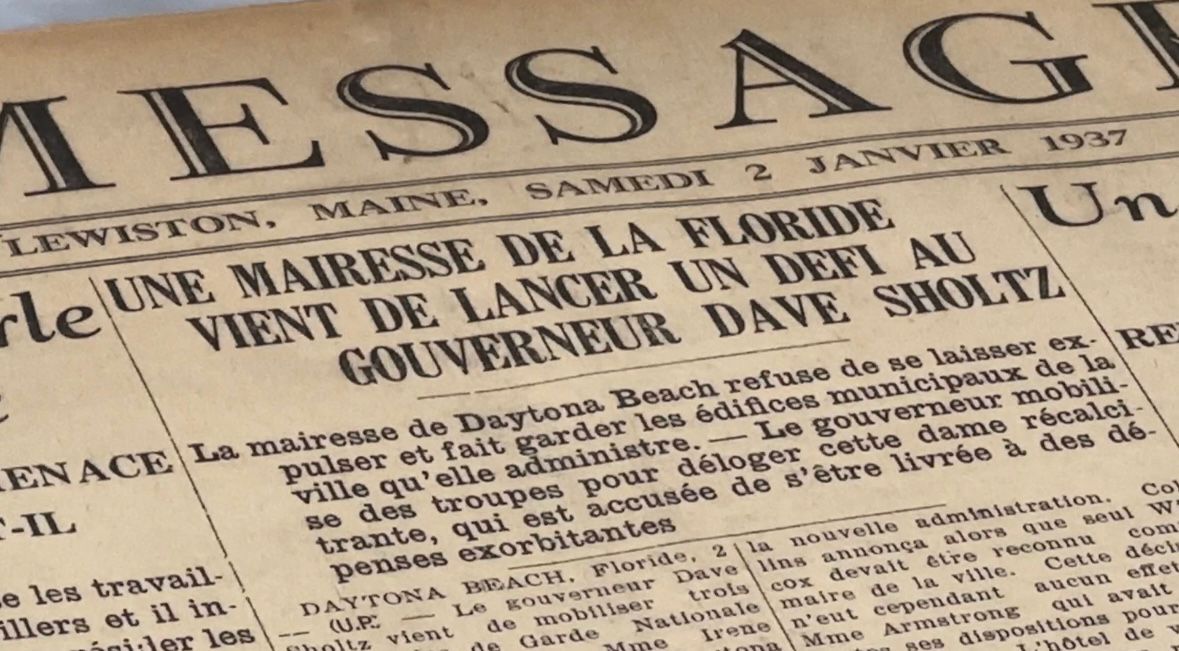A federal grant is boosting efforts to preserve Maine’s Franco-American history by supporting a project to create digital copies of newspapers.
The Maine State Library in Augusta is working to digitize French papers from 1870 to the 1970s.
Genealogists and historians love to review the papers as part of their research, said Adam Fisher, director of collections development and digital initiatives at the library.
Although many are already preserved on microfilm, some are still paper broadsheets.
“The trouble with these papers is that they are really becoming pretty brittle,” Fisher said during a tour of the library’s lab. “A lot of the stuff we have that was printed before the Civil War was printed on a much higher quality stock, rag stock, and that stuff tends to last.”
But as he pulled out a large 1937 copy of Le Messager, which served Lewiston, he could tell it had been printed on paper made from wood pulp. It’s yellowed and the type runs very close to the right edge, making it difficult to read.
The papers offer a different take on the lives of mill workers than what is found in the English papers of the time, Fisher said.

“Le Messager, which is the Lewiston French language newspaper, did a great job capturing the labor movement as it unfolded in Lewiston and captured some of the voices that might not have been included in some of the other newspapers in town,” Fisher said.
French-Canadians flocked to Lewiston and other Maine mill towns in the late 1800s seeking work making shoes, textiles and bricks, according to the Maine Museum of Innovation, Learning and Labor.
In 1880, Lewiston had 4,714 French-Canadians, a number that grew to more than 13,000 just 20 years later, according to the Franco Center.
In 2021, about 12% of Mainers had French ancestry, ranking third behind Irish (15%) and English (23%), according to the U.S. Census Bureau estimates.
The work to preserve French newspapers is part of a larger project to digitize 100,000 pages of historic Maine papers that also focus on the environment, labor and industry.
The National Endowment for the Humanities awarded the library $261,595 for the project.
The library identified 33 French newspapers in Maine, but so far, has found only 16 of them.
“In many cases, the newspapers were kept by the local libraries and unfortunately libraries didn’t always consider those to be the items that were going to be kept,” Fisher said.
For genealogists looking to verify family lore, the papers not only describe working conditions, but more mundane topics like popular foods or who was in town for a visit.
“People talk about how on social media, people post about what they ate for dinner and whose house they visited,” he said. “Well, it’s not all that different in some of those older newspapers as well. Going through the pages you might find references to great grandmother and what her interests were at the time.”



